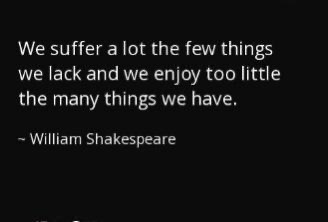
You’re not mistaken. It’s not the English word “German,” but “gaman,” a Japanese word. The Japanese word in kanji, the ideograms adapted from Chinese characters, looks like this: “我慢.” I can easily interpret it with its Chinese literal meaning—I slow. However, in Japanese, what it looks like “I slow” to Chinese people actually means “putting up with it.”
After learning the Japanese expression “もう我慢できない” (I can’t take it anymore), I’ve grown in love with this expression. Saying “mou gaman dekinai” in Japanese is typically cathartic and timely under the stay-at-home order because of COVID-19. In Japan, especially for professional women, saying this phrase takes courage. Many businesses in Japan require working women to wear heels or pumps between 1.9 and 2.75 inches (5-7 cm). Thus, a hashtag KuToo movement is born to fight against the discriminatory dress code. The name is a reference to the MeToo movement and two plays on words with “shoes (kutsu)” and “pain (kutsuu)” in Japanese.
In the US, with no sight of the federal leadership in all aspects of our life, instead, I see frustration, anger, pain and sorrow all over ordinary people’s faces, in speeches and through action. I reiterate “mou gaman dekinai” over and over and over again, as if I’m a language student trying to remember a new phrase by repetition. But I definitely add more emotion to say this phrase. Like acting—if you can read your line with emotion, even though the line is not written by you, your emotion will fool the audience. Mou gaman dekinai!
Following the Crazy English method in China of shouting English at the top of one’s lungs to boost one’s confidence of speaking a foreign language and help memorization, I repeat saying “mou gaman dekinai” a few times out loud and clear. Each time is louder than the previous. Each time as I shout the phrase, I feel the sound of it has penetrated an inch deeper in my eardrum, my heart and mind.
Mou gaman dekinai. I can’t take it anymore because I’m afraid that socially concerned American citizens are waging a losing battle. One of my favorite titles from the Bard is “Much Ado About Nothing.” It can’t be more timely to adopt this title for the situation of some American states which have been under voluntary lockdown in the past two months. Low-income individuals impatiently urge businesses to reopen, and highly-educated intellectuals also can’t stand the delay of mass distribution of test kits and medical aids. According to the US Commerce Department, the US economy fell 4.8% in the first quarter of 2020. 47% of the 4.8% decline was from the nation’s health care sector, partially due to the requirement that hospitals, overwhelmed by COVID-19 patients, temporarily stop all non-emergency surgeries. How ironic.
Mou gaman dekinai. I can’t take it anymore because the mainstream or side-stream media is chasing the disinformation from the liars who hold important positions without holding them accountable. Nothing else can the public learn except knowing the liars have lied again. What is the correct information? How can the public protect themselves from harm’s way? Where are the success stories for the vulnerable citizens to draw lessons from? The social-media-driven, current event coverage is weakening public trust in credible organizations and institutions, and turning neutral facts into emotionally-charged anecdotes.
Mou gaman dekinai. I can’t take it anymore because I have learned to speak up whether I am learning a language or I am giving voice to my thoughts on a page. The power of writing is beyond words. But the chances are limited for foreign-born Asian-Americans to make writing a career. After all, particularly in the traditional publishing world that is dominated by a few Big Houses, Asian American writers are marginalized and their subjects of writing are, unfortunately, pigeonholed into a widely-accepted stereotype in the West. The situation in the literary world is no different from the predicament of an ethnic Asian American actor. He or she is often required to play only the Asian characters in Hollywood. A Hispanic-American descendant is deemed to speak Spanish and English with a Spanish accent. What about the European Americans? Does an Italian last name arouse an image of the Mafia in your imagination? Or does a red-faced Caucasian remind you of Irish ancestry in the Great Famine?
I remember in my early days of creative writing, as apprentices, we were often asked a classic question for all writers: Why do I write? A decade later, I still often think of this thoughtful question. I’m blessed to establish myself as a published author with my memoir Golden Orchid. Writing is never easy for me. But when it comes to writing, I would say the affirmative form of “gaman,” that is, “我慢する” in kanji, in the sense of persevere and endure.
In light of the pandemic, I revisit one of the Bard’s quotes: “We suffer a lot the few things we lack and we enjoy too little the many things we have.” I find the Japanese ethos of “gaman”— to endure with fortitude and dignity, self-restraint and control, patience and tolerance—will take us a long way in the public health crisis in the US.

